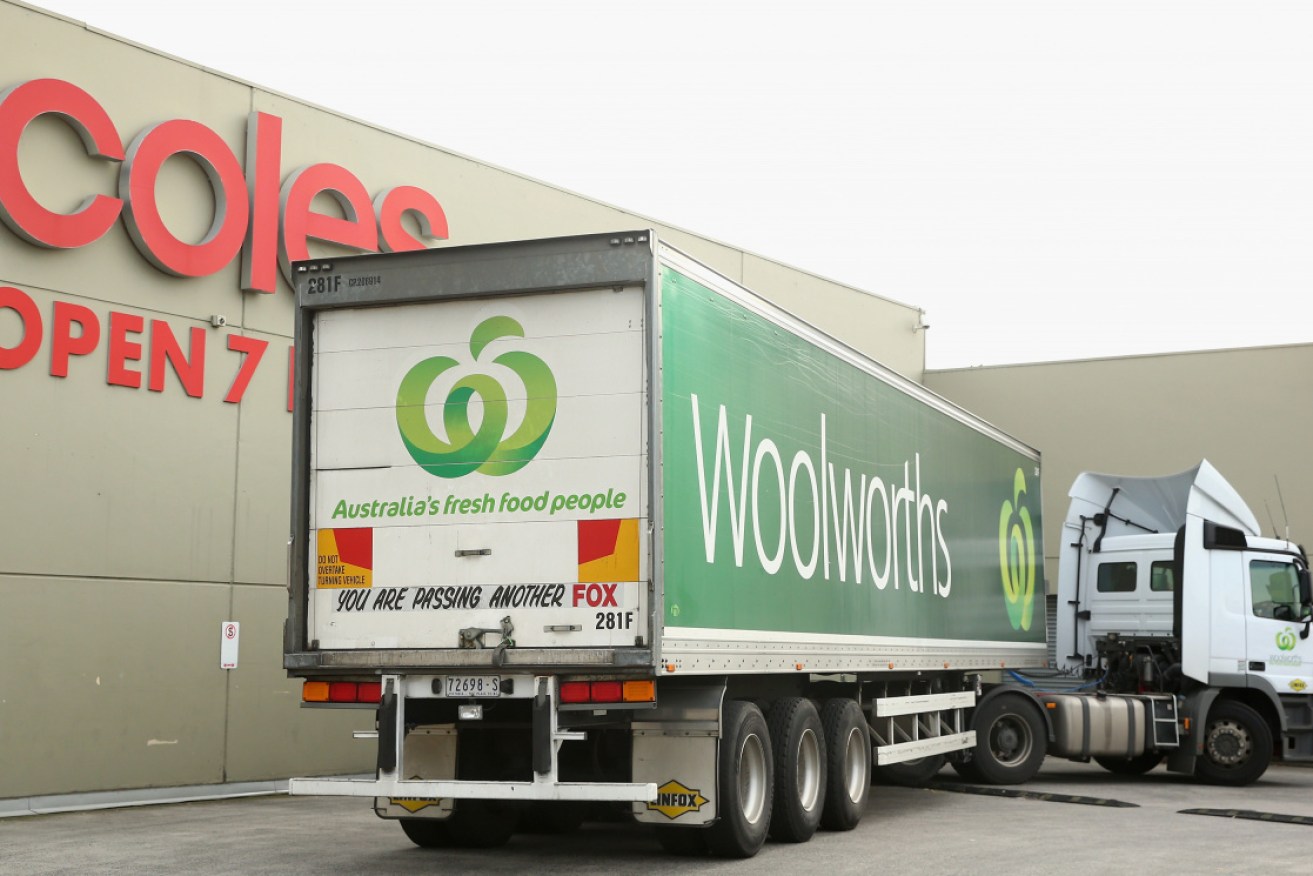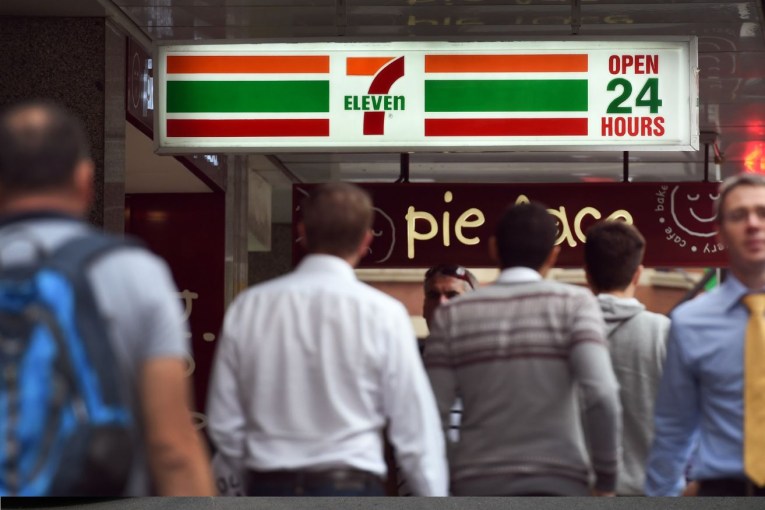Coronavirus disruption unleashes left-field rivals on supermarkets


Already wounded supermarket companies have a new foe to battle: The Golden Arches. Photo: Getty
Businesses are scrambling to adapt to a swiftly changing retail market – and it’s one where only the strong will survive, experts say.
The usually resilient supermarkets are facing attacks on many fronts: staff are being diagnosed with the coronavirus, supply chain disruptions are showing in empty shelves, and now they’ve got more competition than ever.
McDonalds this week announced it would be swinging its global power into the grocery department, selling essentials – dairy and bakery products – through its drive-through services, alongside its takeaway food menu.

One bacon and egg McMuffin, one hash brown and one litre of milk, please. Photo: McDonald’s Australia
It’s a powerful weapon to bring into the arena, Deakin University marketing lecturer Michael Callaghan told The New Daily this week.
Dr Callaghan said he wouldn’t be surprised if Macca’s started making use of its delivery service to get these essentials out to customers, too.
The company’s brand is firmly embedded in Australia’s consumer habits – and with dining-in now closed, it now has plenty of unused space inside its restaurants to capitalise on these essentials deliveries.
It’s got unique relationships with suppliers that could enable it to source milk at a wholesale price and established deals with large-scale bakeries, creating a formidable foe for Coles and Woolworths, not to mention smaller players like IGA and Aldi, Dr Callaghan said.
“People may just change their shopping habits,” he said.
I'm skeptical. "I don’t think many people will be asking for milk and English muffins with their Happy Meals at the Drive Thru…"
However, there are many other businesses truly adapting and innovating.@QUT @QUT_AMPR @TheTodayShow @9NewsAUS#coronavirus https://t.co/qXoBbwfU8B
— Professor Gary Mortimer 🛒🛒🛒 (@ProfRetail) April 2, 2020
Innovate or detonate
Australia’s retail landscape wasn’t sitting pretty before the coronavirus pandemic hit our shores, but its arrival has forced the hand of businesses that were teetering between success and failure.
Many have chosen to use the outbreak as a sign to pack it in, opting to close doors definitely or indefinitely, Queensland University of Technology associate professor Gary Mortimer said.
Then there are others who are choosing to harness innovation as a way of keeping their (virtual) doors open.
“It’s very much like human behaviour, in a period of uncertainty or risk, it’s fight or flight,” Professor Mortimer told The New Daily.
“Some have closed doors and said, ‘It’s too hard’. “Others are choosing to innovate and asking, ‘How can I collaborate?’.”
Today I bought a gift for a family member and within 2 hours of ordering it online from a favourite local small retail shop, they personally delivered it, gift wrapped, for free to my doorstep, with a bonus discount code too. This is why we must keep supporting small businesses.
— Eloise Keating (@ellykeating) April 3, 2020
It’s going to be about making their business model outlast consumer innovation, too.
Professor Mortimer used gyms as an example of an industry that could struggle to get back on its feet even after the coronavirus passes.
If people have worked out how they can stay healthy for four to five months at home without going to the gym, they might not renew that $40-a-month membership, he said.
Both Professor Mortimer and Dr Callaghan agreed a post-coronavirus world could look very different to what we’re used to.
Big companies that usually hold dominance over consumers are struggling to be able to flex quickly enough to adapt to changing regulations and requests, while independence is freedom.
Whereas the traditional corner stores were trampled when big-name supermarkets moved in, Dr Callaghan said, sole traders are now enjoying the freedom to establish their own partnerships with neighbouring small businesses, the goal being to innovate and meet customer demands.
“It’s getting to the point where the sole trader can service the community better than a supermarket,” he said.








